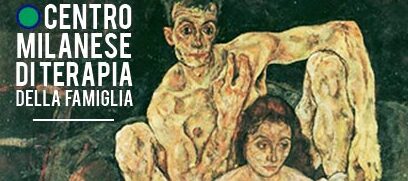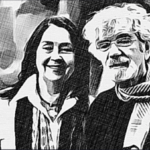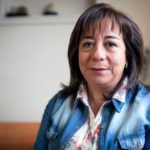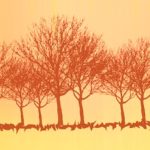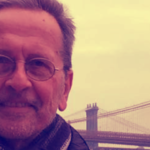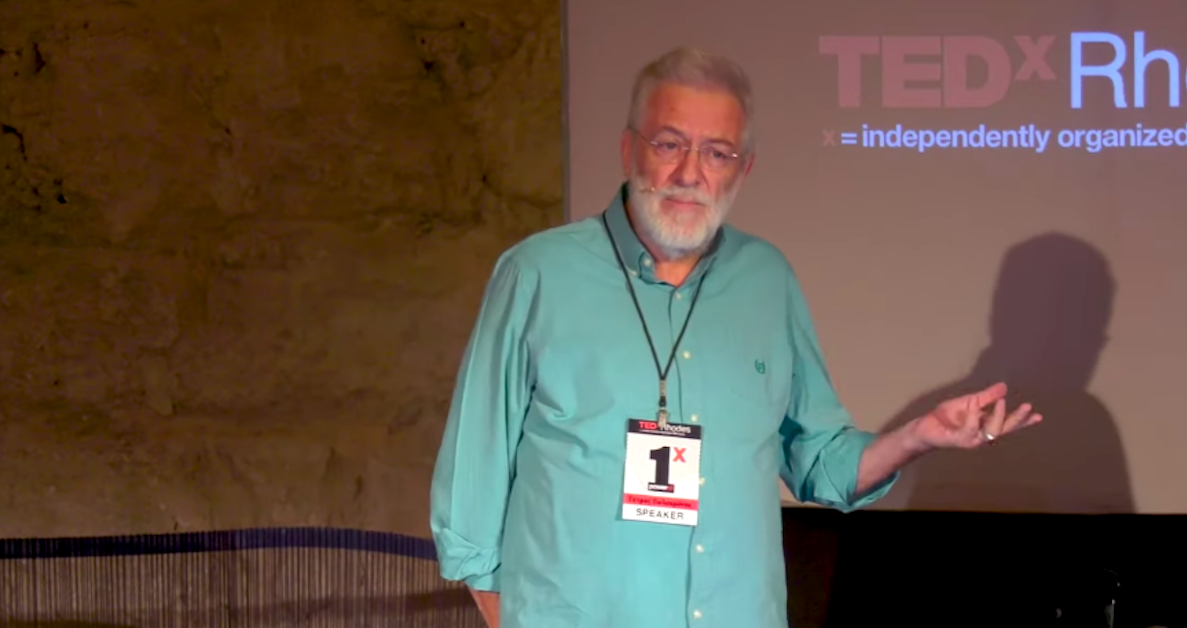
A transcription video by Petros Polychronis
https://www.metalogos-systemic-therapy-journal.eu/en/issue/article/39-04
From Metalogos Systemic therapy journal, edito da SEVE, Associazione Sistemica Ellenica del Nord – Systemic Association of Northern Greece Systemic Ass. Systemic Association of Northern Greece.
Dear friends, Metalogos wishes to greet our beloved Petros Polychronis, and is planning a great tribute to him in the next issue 41 (July 2022). We invite you to collaborate by sending us your input, in text and video, to creatively honor this great colleague – a Humanist who will continue to guide our lives.
Stephen Hawking: I think the next century will be the century of complexity
Geoffrey West: You are your networks
According to Capra, complex and living systems are among other things self-transcendent. When a complex system becomes unbalanced, the opportunity for creativity and new meanings – among the many alternatives – emerges in the ever-changing environment. This new meaning creates, demands and gives the opportunity to a form of activism that concerns the relationship of the complex system with itself and its environment.
Since I have tried to condense this very rich material that I want to talk about, I had to think of my heroes to support me in demonstrating a specific point. I always remember that George Vassiliou told me “focus on one point”, while I always wanted to tell everything, to show that I knew a lot, including as much as possible. However, when I did that, it was a disaster, but when I remembered that “point”, I always managed to get something. The first heroes, of course, will be my teachers, the Vassiliou couple. George and Vasso Vassiliou, graduates from Athens Medical School (1953) and Loyola University in Chicago (1962) respectively, were the founders of AKMA (1963). Couple in life and companions in the promotion of the systemic approach and group therapy, have worked as a psychiatrist and as a psychologist respectively with groups for life.
George and Vasso Vassiliou completed their internship at the Illinois Psychiatric Center, Galesburg National Research Hospital, and Loyola University after their basic studies. They then worked as permanent staff in these organizations and at the Universal Charity Guidance Center in Chicago.
After their return to Greece and the founding of AKMA, they continued to develop their work and technique in group and family therapy. Vasso Vassiliou was Full Professor of Psychology (1963 – 1975) at Pierce American College and further developed the “Sequence Analysis Technique” for clinical and socio-educational purposes in family therapy and education. They developed approaches adapted to the particular cultural and social characteristics of the Greek family, using the pioneering research of N. Ackerman, V. Satir, P. Watzlawick, L. Whyne and other scientists from the Palo Alto team, with whom they have maintained a relationship and long-term cooperation, since the late 1960s. In addition, they developed the “Synalactic Group Image Image Technique” in group therapy. This technique is based on Arnold M.’s “Story Sequence Analysis to the Group Process” and was adapted by Vasso Vassiliou.
First of all, it must be said that AKMA (Athenian Institute of Anthropos) was not born as a school of psychotherapy, but as an activist center. The idea of the center was born when Vassiliou was in a valley full of bones of partisans and soldiers, who had fought during the civil war. The priority at that time was renovating the streets, rebuilding the economy, while he wondered: “What are we going to do with the people who massacred themselves?” and he had concluded that we had to create a center for the human being. Thus the idea was born, and in the process of improving the understanding of the human being and the phenomena that characterize it, the founders encountered systemic thinking and made it to them as a tool to understand the world, and this tool helped them to take care of people. The therapists, returning to Greece after having trained in the American system of family and group therapy, realized that this was very foreign to the reality they faced, and for this in the first years of their work they studied the local culture. In other words, they tried to understand how these specific people live and understand meanings, such as a good father, a good mother, a good spouse, what is right and what is wrong. They did a lot of research to understand before intervening, and for this a symposium entitled “Family Therapy in Context” was organized, which took place in Lesbos. The first time we saw family therapy in Boston it was very different from that in Mytilene.
And this continued for many years, in fact, five years ago, the center carried out an integration project, to promote coexistence between migrants, Afghan and Pakistani minors, and the local population, who until then lived in mutual hostility. And this work went very well, even if it was canceled by politics and public financiers. What I am saying, therefore, is that there was activism behind the birth of AKMA and in its practice. I hope that our activist spirit can intensify with this conference.
Another person I will refer to is Fritjof Capra. The video that will be presented is taken from a film in which he proposes his ideas of him. The title of the film is Mindwalk and was made by Capra’s brother. One scene features a politician who wanted to run for the American presidential elections, his speech writer, and a systemic therapist.
– Who knows? You may have that vital piece of information that we politicians … venal and stupid as we are have been missing out all along.
– Here, you think in terms of pieces, The pieces are all we have of the picture, only fragments.
-Give me some examples
– Well, let’s take the population problem for example. You can’t solve this by looking at the different forms of birth control in isolation. Research has shown time and time again that the most effective birth control is not the pill. It is the social and economic improvement that reduces the desire for large families. Did you know that 40,000 children die every day from malnutrition and preventable diseases? One every two seconds, now, and now, and now… But these children’s short lives cannot be seen in isolation. They are part of a whole system that includes economy, environment and more specifically the very high debt of third world countries. The burden does not affect those who created the imbalance, it affects those who suffer it.
The dialogue continues and one person states:
– A Cartesian would look at the tree and could conceptually tear it apart. But then he could not understand the nature of the tree. A systems thinker would look at the tree and see the seasonal exchange between tree and earth, earth and sky. He would see the annual cycle, which is actually a great breath the earth takes through its forests, providing us with oxygen. A breath of life, which connects the earth with the sky and us with the universe. The systemic thinker would look at the tree and see the life of the tree in relation to the life of the entire forest. He would see the tree as a habitat for birds, a home for insects. But if you look at the tree and try to understand it as something separate, you will be struck by the millions of fruits it is producing over the course of its life, because only one or two trees will grow from these fruits. But if you look at the tree and see it as an element of a larger living system, that infinite amount of fruit will make sense because hundreds of forest animals and birds will survive thanks to them. Interdependence. And the tree cannot survive alone. To draw water from the soil, it needs the fungus living in its root and the fungus needs the root to survive and the root needs the fungus. If one dies, the other dies. And there are millions of such relationships in our world, each dependent on each other for life. Systems theory recognizes this network of relationships as the essence of all living beings. Only the uninformed would call this notion naive or romantic, because this addiction we all share is a scientific fact.
-A network of relationships?
-Yes, but only this time it is the web of life itself. The theory of living systems actually provides an answer to the eternal question: what is life? … A living system is self-sufficient, self-renewing.
[…]
-What does self-maintenance mean?
-Self-organization does not only refer to living systems that are maintained and renewed continuously. It also means that they have an inherent tendency to transcend themselves, to reach out and create new forms. The basic dynamics of evolution is not adaptation, but creativity. Creativity is the basic element of evolution. Every living organism has a creative potential, to surprise and transcend itself. You see, evolution is much more than adaptation to the environment. Why is the environment if not a living system that evolves and adapts creatively? So what suits what? One to the other, they co-evolve. Evolution is an ongoing dance, an ongoing conversation.
-We are a system and the planet is a system. We do not evolve on the planet, we evolve with the planet.
This film highlights the limit of cutting into small pieces, as Bateson has repeatedly told us. There will be an example below and you will see how wrong I was with a family because I broke the system. The second point is what a tree is in the eyes of the systemic thinker. Which is exactly the concept of complexity. Once we see all this complexity, we understand, first of all, that we cannot cut into pieces, and secondly we understand that there is adaptability, which was the point that interested me most. And a question that arises is whether this coevolution also concerns the relationship between therapist and patient, which I will talk about later.
And now I’d like to talk about my third hero, Simone Weil. She was an existentialist philosopher who fought with anarchists in Spain. She was the first of her in her class in philosophy, her second was Simone de Beauvoir. One important thing she says is that pain is above and beyond ideologies. She actually says that: “If I do not experience the way workers live from this position, I am not credible because I see it from the outside and I do not perceive it”.
Simone Weil greatly influenced existentialist psychology. She had five guiding ideas, but I will refer very briefly to only two. She said there are five important things. The first is unhappiness, the second is attention, the third our roots, the fourth resistance and the fifth the sacred. As for unhappiness, she focused on the fact that power turns anyone under her control into an object. She was referring to workers and employees, power turns them into an object. And I think this is also true today. Regarding our roots, she commented a lot on alienation because she lived it with her family. And regarding the sacred, she was talking about something that I think is related to the creativity that we have seen before. She said that the human being has a tendency to get closer to God. And with this she was referring to the fact that the human being, through the potential to love the other, is able to tend to relationships with the sacred. So I would say that she, at some point, she meets with Bateson. Bateson said that there are places that human consciousness must not reach, referring to the sacred. Simone Weil was trying to pierce the veil of consciousness and integrate into the world as it really is. She was inhabiting her philosophy of hers. In other words, she lived the way she saw the world and her philosophy of hers. I consider this condition a form of activism. From here she started her activism of hers, and her decision to fight in the Spanish Civil War and so on. But how does this challenge us as family systemic therapists?
Now I would like to give an example taken from a journey with a family. A mother called me to the center, she asked me to refer her to someone with whom her son could take a WISC test, son who is in the seventh grade. I knew the family, I had met them eleven years earlier, for a different reason, when the son was very young, a child. And I knew the boy’s grandfather. They came from an aristocratic family from the Peloponnese. Then the mother, resuming contact with the grandfather, and the fact that I have seen them before, called me and asked for the test. I told her it would be better to have a family session, because the test was asked by the boy’s school, but it is not good to take those tests when someone asks for them suspecting learning difficulties. She replied: “yes, but we have to meet the deadlines to deliver the document, so please let’s do it and then we can do the family session”. So I accepted, I surrendered to the authority of the school. She calls me again and asks for a psychiatric evaluation of the child, because we took him to a developmental psychologist and he told us that the child is probably on the autism spectrum. In addition, there was also a relative of the family, a psychiatrist, and he said that we have many people in the family on the autism spectrum, thus reinforcing this hypothesis. I insisted and solicited the family session, and once again my request received the same response, that they needed to deliver the document in the school. I said okay, the boy will be seen by a child psychiatrist who can do a diagnosis and evaluation, but we won’t give you any documents before we do the family session, as we had agreed.
So they arrived for the family session, and they arrived with two open “diagnoses”: learning difficulties and autism. This boy is the third child, the first two are girls. He was born with artificial insemination because they wanted another child. My suspicion is that they wanted a boy to continue the family name. So this guy was born after their fourth try. Later another girl was born, this time without artificial insemination, and completely unexpected. So the boy is the third of four children. The two sisters are sports champions, the second sister was awarded internationally. So we can understand that this little boy, who is also the male boy in the family, had no choice but to stand out. So they came to the family session and I started talking to the boy for a while. I found him very communicative and emotionally present. Autism was proposed because he does not like changes and because he manifests some obsessions. These were the only reasons that led them to think he was autistic.
At one point, when they mentioned the excellent daughters in sports, I said “good, you have many champions in your family”, and the mother replied: “I am very much in favor of top-level sport. Do you have a different opinion? “, Then she asked me what I thought. At first I was disconcerted because I didn’t want to say my opinion, fearing that we would go into conflict. I realize that I forgot to mention how they got there. The mother and the boy appeared, somewhere in the background I sensed the presence of the father, who joined us 5 minutes later due to a work commitment, and facilitated the communication using his mobile phone, the daughters did not participate. I asked them, being a family session, where the other members were. They replied that they did not understand etc. You know how it is, it is the “designated” patient who must come. “The last, the smallest, is sleeping, do I have to go and wake her up?” “No”, I replied, let’s stay as we are and see. So the mom hinted at this high-level sport thing, and the dad, from behind, added that the boy started too, and he’s very good and will probably be a robotics champion too.
I then asked the boy how he felt about it and he replied that he liked it, I asked him if it is a group activity and he replied that there are 2-3 guys at a time and that he likes it. You know how it is, he is on the internet, with robots, etc. I was angry with the mother for pushing the children to high-level sports and sympathized with the father, who timidly, in my opinion, had started to open some doors. For example, he started by saying “you know we’re trying to see what’s going on with the boy, but he got 17 out of 20 at school. When a child has excellent results in physics and mathematics, it is a sign that he is a good student, his average is 17, the problem is that he has 12 in literature “. I asked them if they had discussed it. He replied yes, but that there is always someone pushing. I asked who was pushing, and he pointed to his mother, he didn’t name her, and since he was sitting behind her, she didn’t see him very well. He pointed to her. Therefore, I began to positively evaluate the father, while I did not like the mother and, of course, most of all, I started to like the boy, and I used him as a co-therapist throughout the discussion. I cannot repeat the session word for word, but in its development I perceived that I was struggling not to become an instrument of authority. The authority of the school, the authority that is the family tradition and wanted the boy to be great, able to carry on the family name.
However, inside me, I realized that I was dissecting them, that is, in the words of Bateson: “the division into parts, is our device of convenience”. In other words, I found that it was convenient for me to divide them into good and bad. So I started doing what I shouldn’t have done, that is, splitting them inside me. And as the session was about to end, and I had told them that it was necessary to talk all together, the father began: “Can I ask you a question?” Yes,” I replied, then he asked me, “When he has obsessions, how should we deal with them?” I asked for an example. “For example,” he says, “he never wants to be photographed. Whether alone, with his sisters or with his grandparents, he doesn’t want to be photographed. How should we behave?” I told him it was a very interesting question, to which I had no answer, but that it would be an interesting discussion that we could have together next time we met. He asked me why all together.
At this point, having briefly reflected on this, I replied that I would keep them updated, but that it would be unfair for me to make some family member miss this opportunity, this “party”. What did I mean exactly? When I reflected on the session, and thought about my mistakes, I realized a few things. First of all I remembered why they had come ten years ago. Her mother had been in a car accident and her youngest daughter was with her, and was seriously injured. There was a risk that she could not survive, she spent six months in hospitals and she stopped talking. And she started talking again thanks to this boy, who was very close to her and they spent a lot of time together, at least that’s what her parents told me: he helped her to talk. I also remembered from the last story that there was a phrase that struck me and that I had kept in my mind. The mother-in-law had said to this woman, the mother, “You know, you have entered the family” – and I then thought that this couple had not found each other and fallen in love and married, but they were entering a family. We can understand what this means and its weight. And then I realized that I had been unfair to this mother, because not only was she entering a different family from hers, but she had also had this incident which had further degraded her position in the family. She then she tried to become worthy of belonging to that family through high-level sporting ideals and so on.
The thing I want to tell you is that, for me, what brings the family through the boy is an opportunity for autopoiesis. A chance for them to create another meaning: what it means to be a father, a mother, what it means to live all together, what it means to be a family, what we will do with our traditions. For me, it’s an opportunity for them to co-evolve, and they have it inside. And it was my mistake to say the boy brought them. He didn’t bring them. Inside the boy are the strengths and weaknesses of the whole family.
And I wonder first of all, what is activism? To begin with, I blame myself first, for cutting them into pieces and telling the good, the bad, and the ugly in the family. Instead, I need to learn to see complexity and enjoy it as a “party”. Second, I have to oppose the school system and other systems that require diagnosis and so on. Let’s be careful, because in my opinion, with the different diagnoses, labels and exclusions, we have become professional collaborators of power systems that make the human being crash in our day. And of course these people, with the work on themselves they will do, and with their power of self-transcendence, with the destabilization that comes through the boy, can use this self-transcendence for personal activism. Because this father has to deal with the family tradition, or he has to deal with school, define for himself what his dreams are and what it means to prepare, grow up with his children in today’s world.
At this point, in my opinion, they have a great opportunity to reframe things through their complex structure and not through fragmentation. The therapist must become an activist against himself and against the professional space and context, and the way these are defining us. And he also needs to become an activist primarily for dreams for the future. The thing I would like us to remember is that Cecchin was saying that since people come to therapy, they are alive, and when he said it he smiled. What I am arguing is that we need to take another step. For me, family sessions, family therapy, can be an opportunity to celebrate complexity and also the opportunity that complexity gives to us and to them, the patients, because together we make a system, to act in favor of this autopoiesis and self-transcendence, and creativity that we saw earlier in the film. By the way, Mary-Catherine Bateson described this coevolution with the metaphor of the sickle and muscles. It talks about the man who uses the scythe, and how the use of the scythe forms the muscles he needs, and how man and the muscles and the use of the scythe affect the environment and so on. It is a perfect metaphor for her to illustrate the co-evolution between the human being and the environment.
